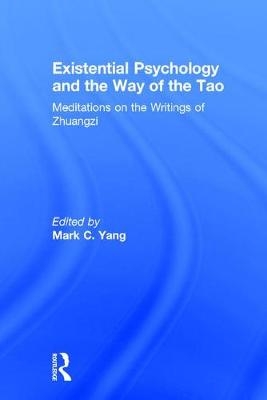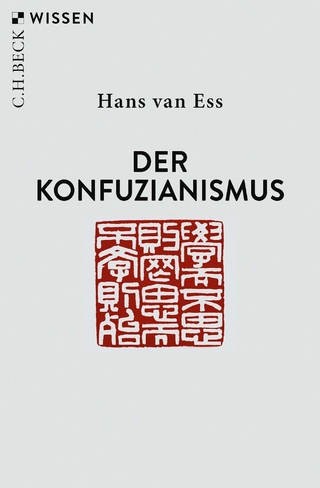
Existential Psychology and the Way of the Tao
Routledge (Verlag)
978-1-138-68699-1 (ISBN)
In ancient China, a revered Taoist sage named Zhuangzi told many parables. In Existential Psychology and the Way of the Tao, a selection of these parables will be featured. Following each parable, an eminent existential psychologist will share a personal and scholarly reflection on the meaning and relevance of the parable for psychotherapy and contemporary life. The major tenets of Zhuangzi's philosophy are featured. Taoist concepts of emptiness, stillness, Wu Wei (i.e. intentional non-intentionality), epistemology, dreams and the nature of reality, character building in the midst of pain, meaning and the centrality of relationships, authenticity, self-care, the freedom that can come from one's willingness to confront death, spiritual freedom, and gradations of therapeutic care are topics highlighted in this book.
Mark C. Yang, a licensed clinical psychologist, is co-editor of Existential Psychology East-West Vol. 1 (2009) and has published professional articles on the practice and training of humanistic and existential psychologists in international settings. Dr. Yang is co-founder and director of the International Institute of Existential-Humanistic Psychology, whose mission is to promote humanistic-existential psychology and provide clinical training to mental health professionals in Asia. He is an adjunct professor at Saybrook University in San Francisco.
Foreword List of Contributors Preface Acknowledgements Overview of the Book Chapter Introductions Part I. Emptiness, Stillness, and Wu Wei 1. The Useless Tree and the Empty Gourd Mark C Yang 2. Wu Wei (無爲/无为) Jason Dias 3.Steadiness in the Midst of Chaos Michael Moats Part II. Knowledge and Epistemology 4. Humanity’s Search for Meaning in Existence: A Taoist Epistemology Rodger E. Broomé 5. Knowledge and Psychotherapy: Lessons from Zhuangzi’s Parable When Knowledge Went North Trent ClaypoolPart III. Miscellaneous Chapters 6. On the Power of Butterflies: Dreaming, Waking, and the Therapeutic Potential of Nocturnal Beings Erik Craig 7. Master Hui’s Grave: To Sharpen Your Character, Rub It Up Against Something Abrasive Richard Bargdill 8. Releasing the Jade, Grasping Meaning Louis Hoffman 9. Dragging My Tail in the Mud: Personal Reflections on Authenticity David N. Elkins 10. Plough Deeply: Cultivating Authentic Living Jennifer Tam 11. Usefulness of Uselessness: Freedom Before Death Shiyan Zheng (Translated by Lihua Yang) Part IV. Autuman Floods 12. Along the Way to Spiritual Freedom: From Rivers to Seas and Heaven to Tao Yang Shaogang and Li Yun 13. The Enlightenment of Autumn Floods Wu Fei (Translated by Doreen Deng) 14. Can You Tell A Dragon Fly About Ice? Implications of Zhuangzi’s “Relative Gradations” for Therapeutic Care Todd DuBose
| Erscheinungsdatum | 12.07.2017 |
|---|---|
| Verlagsort | London |
| Sprache | englisch |
| Maße | 152 x 229 mm |
| Gewicht | 430 g |
| Themenwelt | Geisteswissenschaften ► Religion / Theologie ► Weitere Religionen |
| Medizin / Pharmazie ► Medizinische Fachgebiete ► Psychiatrie / Psychotherapie | |
| ISBN-10 | 1-138-68699-9 / 1138686999 |
| ISBN-13 | 978-1-138-68699-1 / 9781138686991 |
| Zustand | Neuware |
| Haben Sie eine Frage zum Produkt? |
aus dem Bereich


